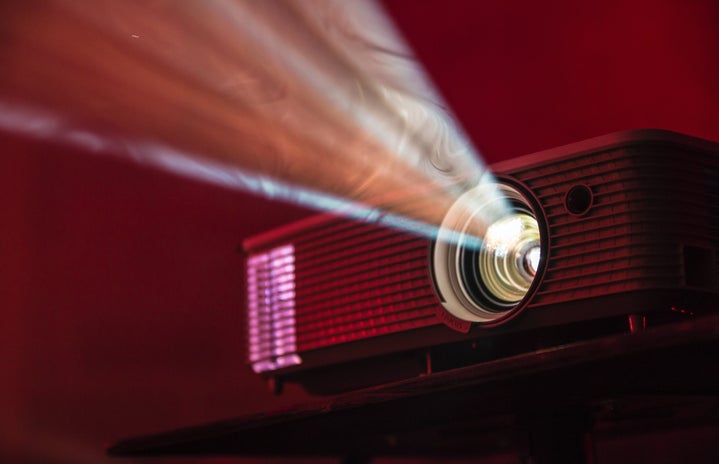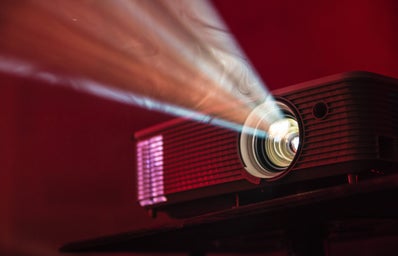You’ve probably read a lot of listicles about female directors – and this is no exception. However, as someone who spends a lot of time thinking and writing about film, I hope that some of these picks are unfamiliar to you, and you are able to take this as an opportunity to rediscover some of your old favourites, or something new.
-
Diary of a Teenage Girl (2015), dir. Marielle Heller
-
Based on the graphic novel with the same name, Diary of a Teenage Girl tells the story of Minnie, a fifteen-year-old from San Francisco, as she enters into a relationship with her mother’s boyfriend in the seventies.
Phoebe Gloeckner’s original graphic novel sets the tone for this film’s hypnotic combination of animation and live action. Minnie is played by Bel Powley, who you may recognise from M.I. High.
Most notable in this film is the unflinching approach to female anatomy – this is carried over from Gloeckner’s own style and career as a medical illustrator fascinated by the human body. Though she is played by an adult, Minnie’s naked body is a focal point of the film. This is not overtly sexual – she simply is. She worries she is unattractive, and enjoys attention from an older man who reassures her that she is desirable at a vital turning point in her life.
-
Jennifer’s Body (2009), dir. Karyn Kusama
-
Jennifer’s Body has turned into a bit of a cult classic, and it deserves more praise than it gets. Not only does it explore same-sex, adolescent desire and the female gaze through the eyes of Needy, the film’s protagonist, but it was partly inspired by the real-life case of Elyse Marie Pahler. In 1995, when she was fifteen years old, Elyse was killed by a group of boys as a “sacrifice to Satan” in order for their band to find commercial success.
In the film, Jennifer (Megan Fox) and Needy (Amanda Seyfreid) are best friends. One night, when Jennifer takes Needy to a gig by the band Low Shoulder, she is kidnapped by the band and killed as a sacrifice to Satan – similar to Pahler’s murder. However, the band get much more than they bargained for.
This is a severely underrated film which explores female friendship and the use of the female body in horror, has an amazing soundtrack, and sprinkles in hilarious one-liners about men being the actual worst. It’s visual effects are also striking, exploring the border between grotesque and beautiful, and how women can become twisted by violence enacted on them by men.
- The Piano (1993), dir. Jane Campion
-
Jane Campion is a New Zealand writer and director, and the first woman to ever win the Palme D’Or – for her work on The Piano.
Set in the mid 1800s, The Piano stars Holly Hunter and Anna Paquin as a mother and daughter from Scotland. Ada (played by Hunter) is psychologically mute, and has been since she was six years old. She communicates by playing the piano, and through sign language, and her daughter Flora interprets for her in a mother-daughter role reversal.
Described as peculiar and haunting, The Piano explores the relationship between the native people of New Zealand and those who settled there, non-verbal communication and forbidden love – and once again, body horror, though this is not gratuitous, but rather a frank discussion of how our bodies are used to communicate when our voices do not.
- Clueless (1995), dir. Amy Heckerling
-
Clueless has become an iconic film in terms of fashion, and is considered to be one of the best teen films of all time.
Donatella Versace’s 2018 collection was influenced by Clueless – costume designer Mona May has become famous for her work on the film. And, interestingly, when Heckerling was developing the script (inspired by the Jane Austen novel, Emma), it was briefly picked up by Fox. The male studio heads wanted the script to be re-written with less women in it. But, eventually, it made its way to Scott Rudin, and became the iconic 90s film we know and love today.
Known for iconic catchphrases like “ugh, as if!”, and for Brittany Murphy’s skyrocket to fame (before her untimely death in 2009), Clueless is an example of a pitch-perfect adaptation of classic literature with a 90s spin.
- Sense8 (2015-2018), dir. The Wachowski Sisters
-
I’m breaking the films-only rule to talk about Sense8, mostly because it was 1) cancelled before its time and 2) it is severely underrated.
Known for their mind-bending, what-does-it-mean-to-be-human style, the Wachowski sisters created Sense8: a show that was meant to explore the relationship between human empathy and evolution – this was to be a global effort, and as such, filming took place all over the world and was incredibly complex.
Sense8 tells the story of eight people, across the world, who discover they have a psychic connection with one another when they are ‘birthed’ by a woman named Angelica, who is on the run from a man known as ‘Whispers’. The eight – Capheus, Sun, Nomi, Kala, Riley, Wolfgang, Lito, and Will – are mentally linked, and can communicate with one another, as well as take on each other’s skills. One of my favourite moments is when Mexican movie star, Lito, gets into a fist fight and Wolfgang comes to his rescue, taking over for him and winning the fight. This body-switching which happens in action scenes is incredibly complex, and is pulled off flawlessly by the creators and actors of the show.
When the show was cancelled early, Sense8’s creators were able to bring the storyline to a close. Though it is disappointing that the show couldn’t go on for its intended longer run, the two seasons that were made were pitch-perfect.
A mix of underrated and cult classics, consider this an introduction to film directed by women – with a focus on the body, human connection, and a bit of coming-of-age thrown into the mix. Other honourable mentions include: Nomadland (2020), directed by Chloe Zhao (the first Asian woman to win a Golden Globe), Big (1988), Point Break (1991), Sleepless in Seattle (1993), American Psycho (2000), and Saint Maud (2020). And, if you’re venturing into television territory, some of the best shows I’ve seen were also created by women, with top of the list definitely being Crazy Ex-Girlfriend (2015-2019), created by actress and comedian Rachel Bloom.



